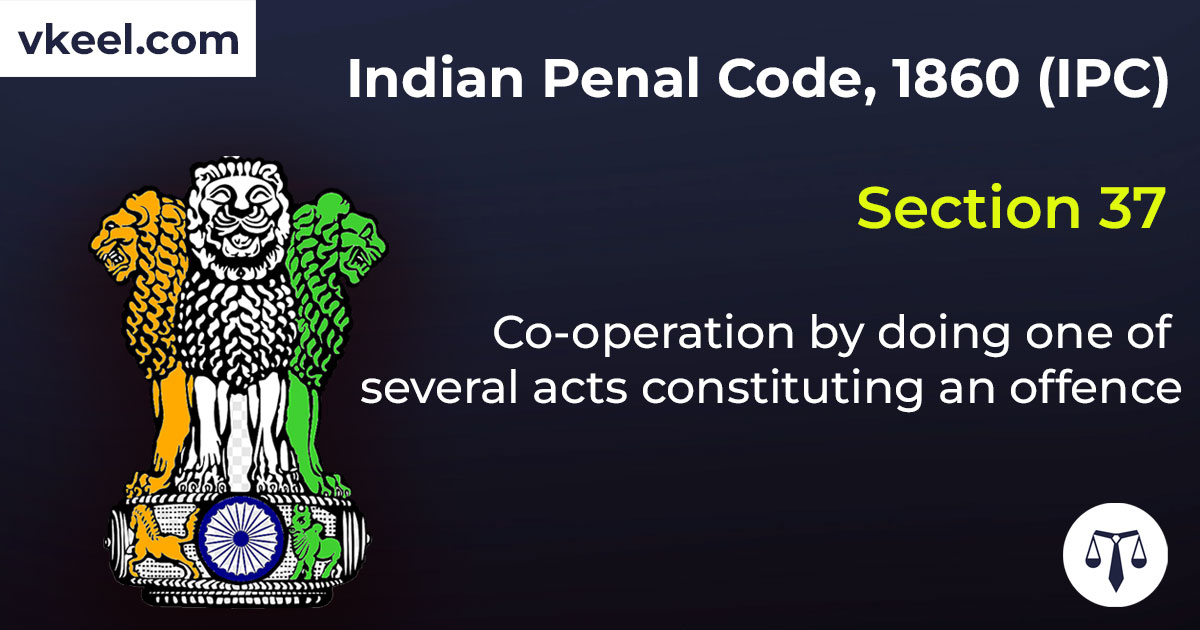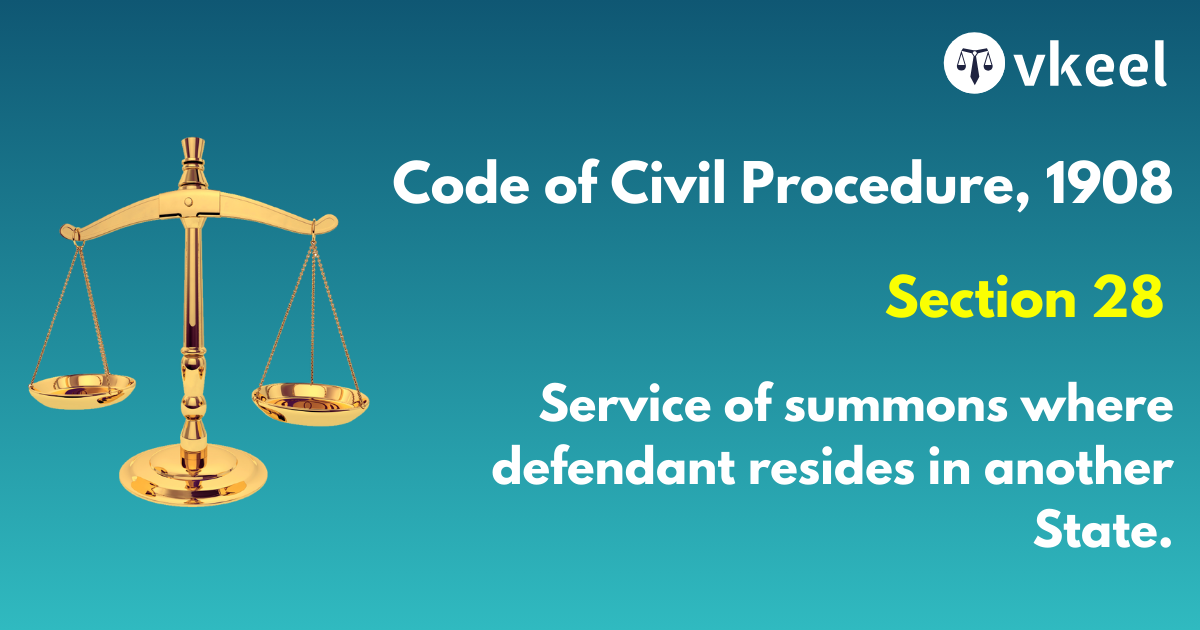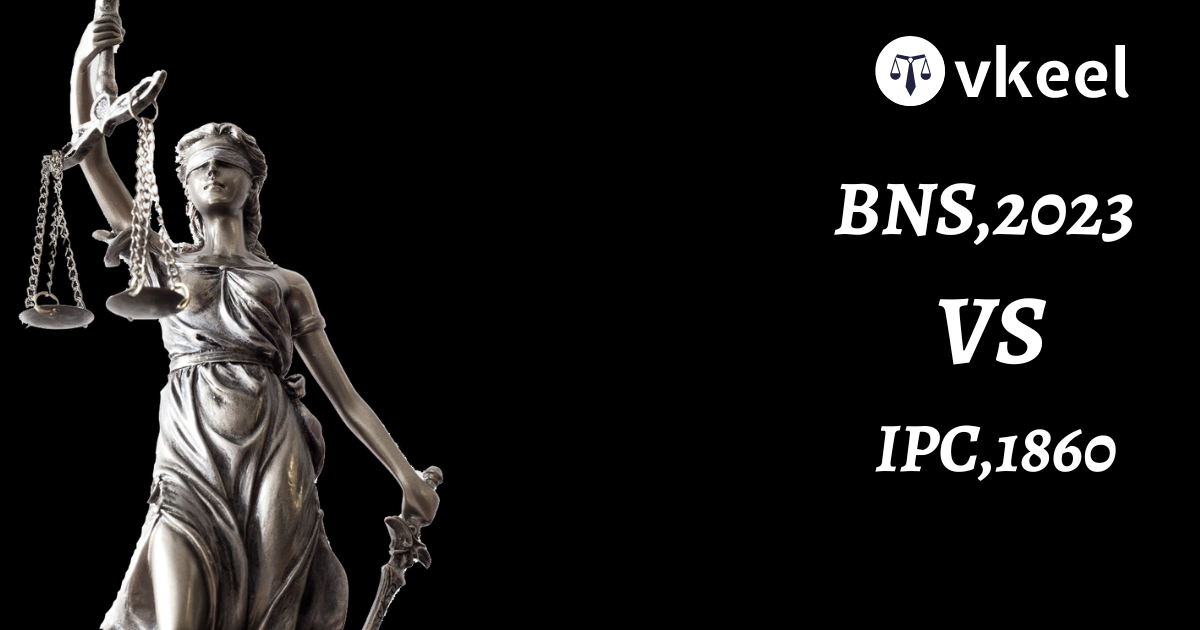Section 37 Indian Penal Code 1860 (IPC) – Co-operation by doing one of several acts constituting an offence
By Vkeel Team
Table of Contents
Description
“Section 37 Indian Penal Code 1860 (IPC)”
When an offence is committed by means of several acts, whoever intentionally co-operates in the commission of that offence by doing any one of those acts, either singly or jointly with any other person, commits that offence.
Illustrations
(a) A and B agree to murder Z by severally and at different times giving him small doses of poison. A and B administer the poison according to the agreement with intent to murder Z. Z dies from the effects the several doses of poison so administered to him. Here A and B intentionally cooperate in the commission of murder and as each of them does an act by which the death is caused, they are both guilty of the offence though their acts are separate.
(b) A and B are joint jailors, and as such have the charge of Z, a prisoner, alternatively for six hours at a time. A and B, intending to cause Z’s death, knowingly co-operate in causing that effect by illegally omitting, each during the time of his attendance, to furnish Z with food supplied to them for that purpose. Z dies of hunger. Both A and B are guilty of the murder of Z.
(c) A, a jailor, has the charge of Z, a prisoner. A, intending to cause Z’s death, illegally omits to supply Z with food; in consequence of which Z is much reduced in strength, but the starvation is not sufficient to cause his death. A is dismissed from his office, and B succeeds him. B, without collusion or co-operation with A, illegally omits to supply Z with food, knowing that he is likely thereby to cause Z’s death. Z dies of hunger. B is guilty of murder, but, as A did not co-operate with B. A is guilty only of an attempt to commit murder.
Interpretation of Section 37 IPC
The interpretation of Section 37 IPC is relatively straightforward. It means that when an offence is committed by several persons in co-operation with each other, each of such persons is liable for the offence committed. The section further explains that if the offence is such that it can be committed by several acts, with the same or different intentions, then each person who does any one of such acts is liable for the offence.
The provision is based on the principle of joint liability for criminal acts. The section is applicable when two or more persons have acted together in committing an offence, or when two or more persons have committed separate acts which, taken together, constitute the same offence.
Case laws on Section 37 IPC
There have been several cases where the courts have interpreted Section 37 IPC. In the case of State of Maharashtra v. Mohd. Yakub Abdul Razak Memon, the Supreme Court of India interpreted the scope of Section 37 IPC in cases of conspiracy. In this case, the court held that a person who is part of a conspiracy to commit an offence is liable for the offence committed, even if he does not take any active part in the commission of the offence.
The court further held that the liability of the accused in a case of conspiracy does not depend on his knowledge of the specific details of the offence. The court stated that it is sufficient if the accused has knowledge of the general nature of the conspiracy and the fact that the conspiracy is likely to result in the commission of an offence.
In another case, Barendra Kumar Gh v. State of West Bengal, the Supreme Court of India held that a person who participates in a crime with the knowledge that the act is likely to result in the commission of an offence is equally liable for the offence committed. The court observed that the liability of the accused in such cases is not limited to the specific act committed by him, but extends to the entire offence.
In the case of State of Kerala v. V.R. Krishna Iyer, the Supreme Court of India held that Section 37 IPC applies only to cases where two or more persons have acted together in committing an offence. The court observed that the section does not apply to cases where two or more persons have committed separate and independent offences.
In the case of Narinder Singh v. State of Punjab, the Supreme Court of India held that Section 37 IPC applies even if the actual offender is not known or is not before the court. The court observed that the liability of the accused under the section is joint and several, and each person who has participated in the commission of the offence is liable for the same.
In another case, K.M. Nanavati v. State of Maharashtra, the Supreme Court of India held that the liability of the accused under Section 37 IPC is not limited to the actual commission of the offence. The court observed that a person who is part of a conspiracy to commit an offence is equally liable for the offence committed, even if he does not take any active part in the commission of the offence.
Punishment under Section 37 IPC
Section 37 IPC does not prescribe a specific punishment for the offence. The punishment for the offence is determined by the punishment prescribed for the main offence committed. For example, if two persons commit murder in co-operation with each other, both persons will be liable for the offence of murder under Section 302 IPC. The punishment for murder is life imprisonment or the death penalty.
However, the courts have the discretion to award a lesser punishment to an accused under Section 37 IPC, depending on the circumstances of the case.
Conclusion
Section 37 of the Indian Penal Code, 1860, is a vital provision in criminal law. The provision lays down the principle of joint liability for criminal acts, which means that when an offence is committed by several persons in co-operation with each other, each of such persons is liable for the offence committed. The section is applicable in cases where two or more persons have acted together in committing an offence or have committed separate acts that, taken together, constitute the same offence.
The provision is significant in cases where the actual offender is not known, making all those involved in the offence equally liable for the crime committed. The section has been interpreted by the courts in various cases, and the scope and applicability of the provision have been clarified.
Desctiption Source: indiacode
Disclaimer:
The information provided in the article is for general informational purposes only, and is not intended to constitute legal advice or to be relied upon as a substitute for legal advice. Furthermore, any information contained in the article is not guaranteed to be current, complete or accurate. If you require legal advice or representation, you should contact an attorney or law firm directly. We are not responsible for any damages resulting from any reliance on the content of this website.












